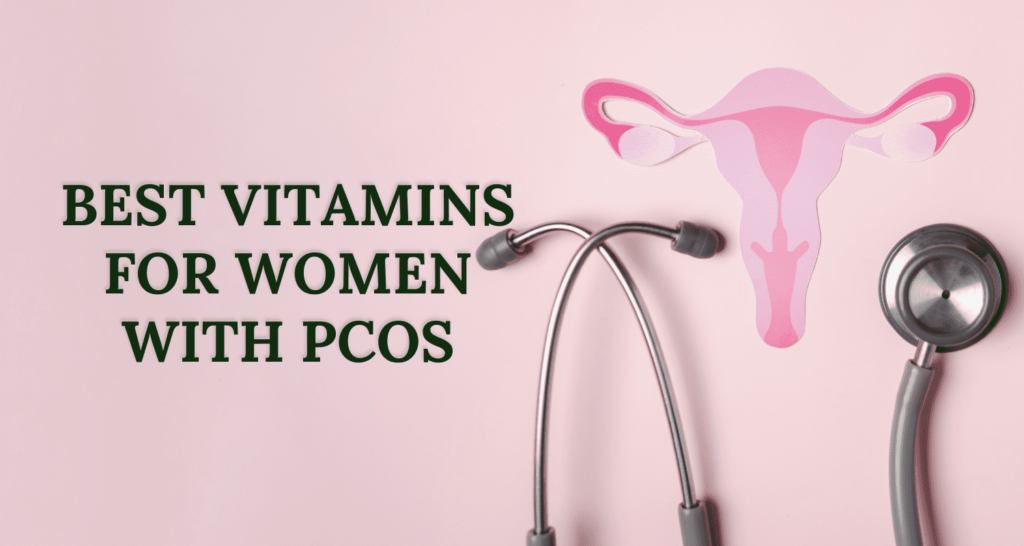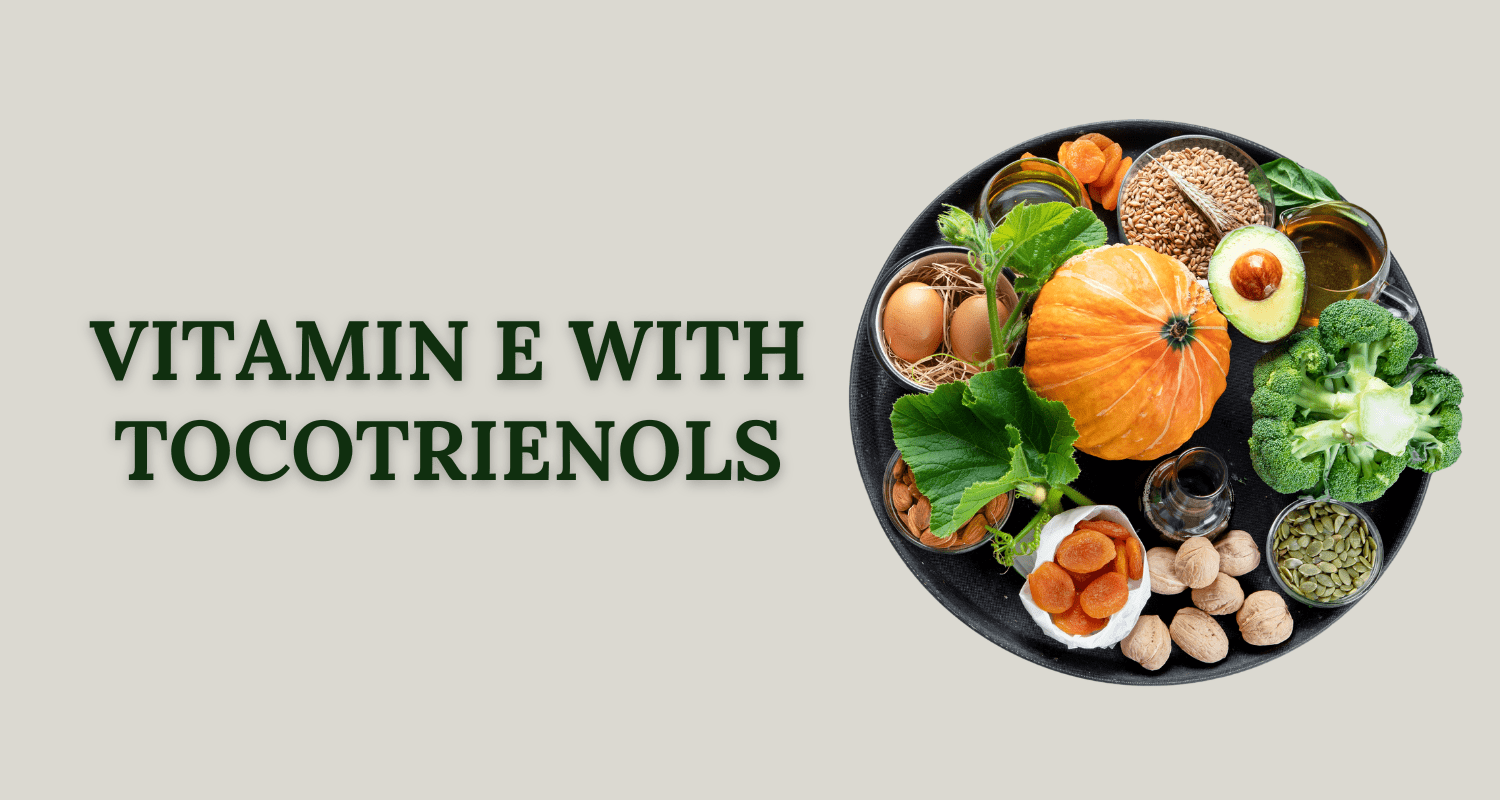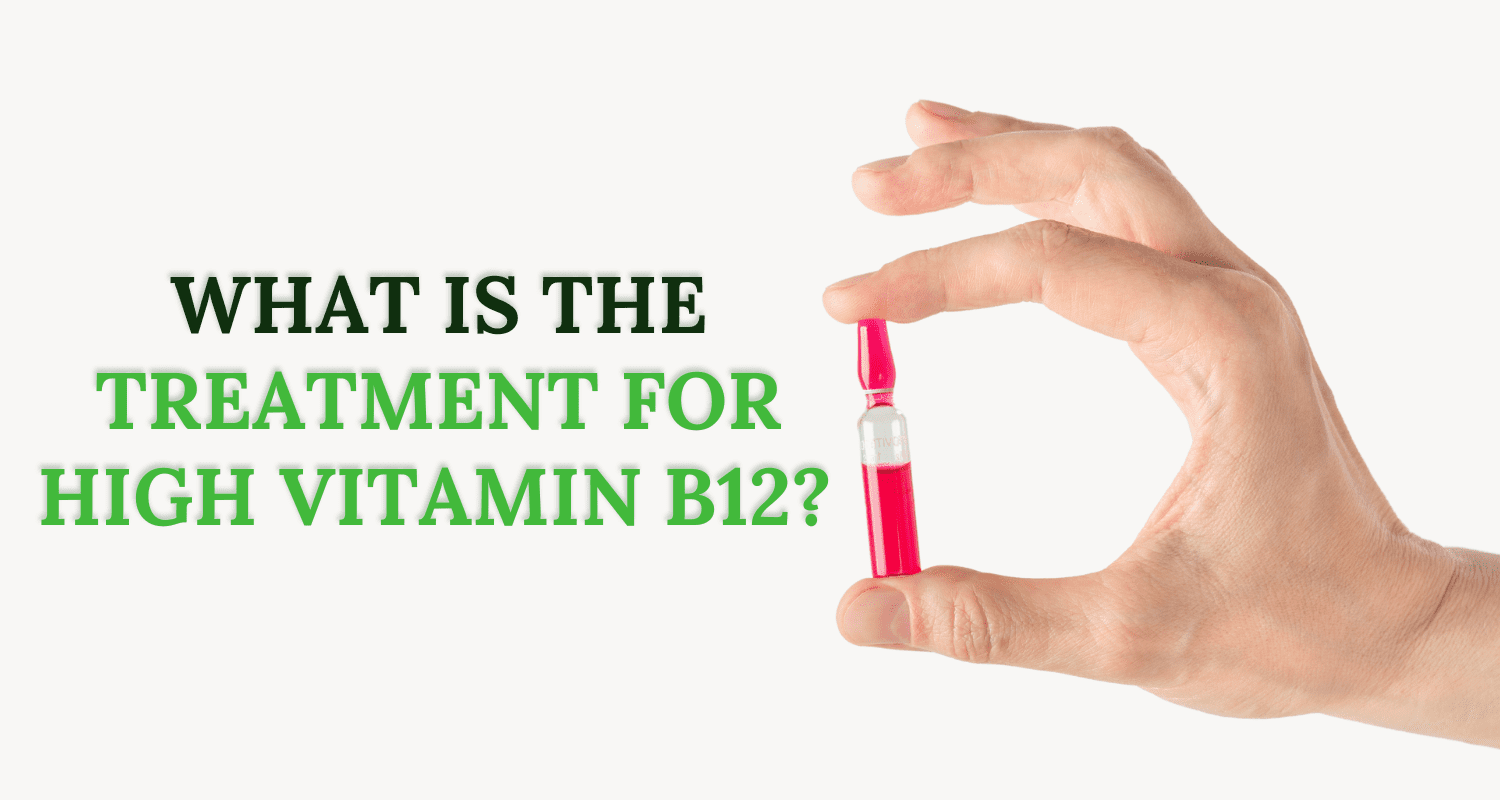Imagine a condition affecting 8–13% of reproductive-aged women. Polycystic Ovary Syndrome (PCOS) is a hormonal disorder causing hair loss, acne, and irregular periods. For many, these symptoms are a heavy burden.
In this article, we’ll explore the best vitamins for women with PCOS. These essential nutrients help balance hormones and improve metabolism, leading to a healthier life.
PCOS supplements do more than ease discomfort. They improve fertility and lower the risk of diabetes and heart disease. Ensuring supplement quality through NSF and USP certifications makes the journey to symptom relief clearer.
Combining proper vitamins with lifestyle adjustments helps women regain control. This approach offers hope for hormonal balance and the joy of potential motherhood.
Let’s delve into the best vitamins for women with PCOS.
Key Takeaways
- PCOS affects a significant portion of the US female population, necessitating a focus on symptom management.
- Hormonal imbalance is central to PCOS, with essential nutrients playing a key role in restoring equilibrium.
- Quality PCOS supplements, marked by NSF and USP certifications, are vital for safety and efficacy.
- The interplay between essential nutrients and lifestyle changes is crucial for managing PCOS symptoms effectively.
- Proper supplementation and the best vitamins for women with PCOS, can not only manage symptoms but also help address fertility concerns associated with PCOS.
- Enhanced knowledge and selection of PCOS-friendly vitamins can improve overall health outcomes for women suffering from this condition.
Understanding PCOS and Its Impact on Women’s Health
Polycystic ovarian syndrome, or PCOS, is a common endocrine disorder. It affects many women in the United States. PCOS comes with various symptoms that can significantly affect a woman’s health and happiness. It’s critical to understand how PCOS works and its effects to manage and treat it effectively.
- Insulin Resistance: Insulin resistance is a major problem for those with PCOS. It can lead to weight gain and higher diabetes risk. To help, regular check-ups and the best vitamins for women with PCOS to regulate hormones are advised.
- Hormonal Imbalance: High levels of androgens cause issues like unwanted hair, acne, and thinning hair on the scalp. It’s vital to control this through healthy living and vitamins to regulate hormones.
Looking into natural remedies for PCOS is helpful for those preferring non-traditional treatments. These remedies aim to balance hormones and better insulin sensitivity. Diet changes and exercise are key in managing PCOS symptoms well.
- Vitamins to regulate hormones are critical for balance and supporting your metabolism.
- Diets that lower insulin resistance help with reproductive health.
Treating PCOS well often involves combining medical advice with care you can do yourself. Working closely with doctors to create a personal treatment plan is key. This plan should fight today’s symptoms and future health issues linked to PCOS.
Best Vitamins for Women with PCOS
Managing Polycystic Ovarian Syndrome (PCOS) is all about diet, lifestyle changes, and the right supplements. Certain vitamins are key in easing PCOS symptoms. They help balance hormones, regulate periods, and improve overall health.
The Role of Inositols in Managing PCOS
Inositols, like myo-inositol and d-chiro-inositol, are top picks for the best supplements for women with PCOS. They control blood sugar and fight insulin resistance, which is common in PCOS. This helps fix metabolism and lowers androgens, easing PCOS issues like acne and irregular cycles.
Vitamin D: Sunlight and Supplemental Sources
Vitamin D for PCOS is vital. It’s known for making periods more regular and lifting mood. Many women with PCOS lack Vitamin D, which worsens their condition. Using Vitamin D supplements and getting sunlight can help manage menstrual cycles and boost fertility.
B-Complex Vitamins: Supporting Energy and Hormonal Balance
B-complex vitamins boost energy metabolism and hormone levels. B6, for example, is good for mood improvement. It tackles mood swings and irritability linked with PCOS. B12 is also crucial, as it boosts energy and lessens side effects from common PCOS drugs like Metformin.
- Vitamin B6 for mood regulation and general well-being
- Vitamin B12 to support energy levels and counteract medication side effects
Adding these best supplements for PCOS to daily routines, under a doctor’s advice, can hugely improve PCOS management. It leads to a better life quality for those dealing with the condition.
Navigating Through PCOS with Omega-3 Fatty Acids
Dealing with polycystic ovarian syndrome (PCOS) can be tough. But, integrating fish oils rich in omega-3 fatty acids helps a lot. These supplements are known for their anti-inflammatory properties. They are key in managing symptoms and improving health.
- Omega-3 fatty acids are key in lowering insulin resistance and cholesterol levels. These issues are common in people with PCOS.
- People with PCOS can improve their heart health. This comes from the protective effects of omega-3 in fish oils.
Fish oils, especially from deep-sea fish like salmon, mackerel, and sardines, are highly effective. These oils, along with flaxseeds and walnuts, help manage PCOS. Using these natural remedies benefits your endocrine and metabolic health. It also aids in long-term cardiovascular health.
Regulate Hormones Naturally: Herbal Supplements for PCOS
Many women are now choosing natural ways to balance their hormones and tackle PCOS symptoms. Herbs like berberine and turmeric are popular. They help improve insulin resistance and work as natural anti-inflammatory agents. This is why they are great for managing PCOS.
The Insulin-Sensitizing Power of Berberine
Berberine is known for its ability to boost insulin sensitivity, much like the drug Metformin. Research shows berberine significantly improves insulin resistance. This helps balance hormone levels and might boost fertility. It also reduces appetite, making berberine a powerful herbal supplement for PCOS.
Turmeric: An Anti-inflammatory Ally
Turmeric, containing curcumin, is great for health, especially in reducing inflammation. It aids women with PCOS by enhancing insulin sensitivity and managing inflammation better.
Adding turmeric to your daily routine is key in controlling PCOS issues. It’s a top natural anti-inflammatory choice.
Using herbal supplements is part of a broader approach to dealing with PCOS. It’s a natural way to improve your condition and focus on wellness and long-term health success.
Mitigating Vitamin Deficiencies in PCOS with Targeted Supplementation
For those with PCOS, tackling vitamin deficiencies is key for good health and managing symptoms. Taking specific supplements can greatly improve insulin function and balance hormones. It’s also smart to focus on essential minerals like zinc and magnesium. These play big roles in hormone regulation and maintaining metabolic health.
Zinc: An Essential Mineral for Hormone and Insulin Function
Zinc is crucial for several body functions, like cell growth and immune support. In women with PCOS, zinc helps balance hormones. It boosts insulin sensitivity and improves lipid profiles. Zinc also lowers acne and hirsutism, which are common in PCOS.
The Importance of Magnesium for Women with PCOS
Magnesium is key for controlling glucose and often lacking in those with insulin resistance. This issue is typical for women with PCOS. Taking magnesium for PCOS helps overcome this shortage. It betters metabolic control and eases PCOS symptoms. Higher magnesium doses have been linked to less menstrual pain and better reproductive health.
Best Vitamins for Women with PCOS: Top Picks and Reviews
For managing PCOS symptoms effectively, finding the right supplements is crucial. Let’s explore some of the best vitamins for women with PCOS that can make a difference:
1. Nordic Naturals – Ultimate Omega
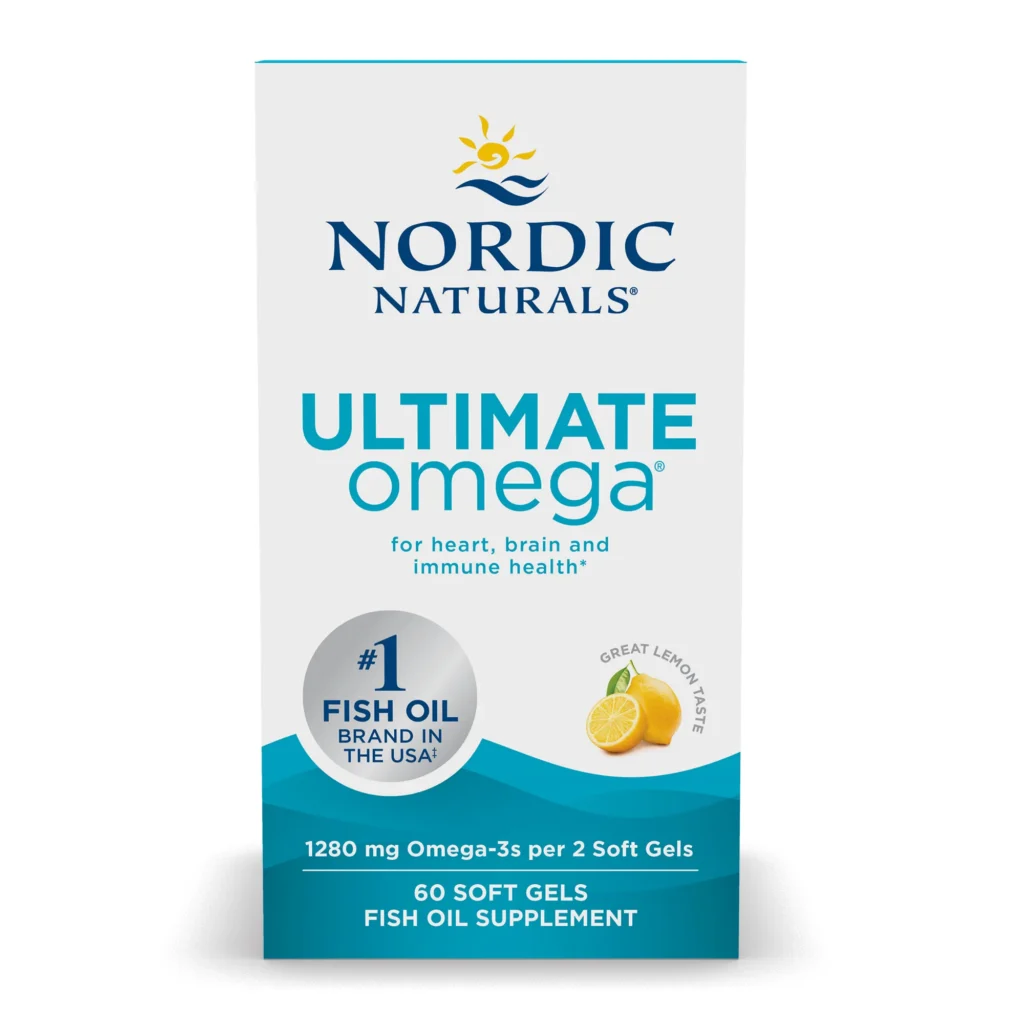
Price: $25-$30 for a 60-softgel bottle
Benefits:
- Supports cardiovascular health and reduces inflammation associated with PCOS.
- Helps regulate hormones and promote healthy skin.
Features:
- High concentration of omega-3 fatty acids (EPA and DHA).
- Third-party tested for purity and freshness.
Ingredients:
- Omega-3 fish oil (EPA and DHA).
Pros
- Sustainably sourced fish oil.
- Small, easy-to-swallow softgels.
Cons
- May have a fishy aftertaste for some individuals.
2. NatureWise – Vitamin D3 5000 IU
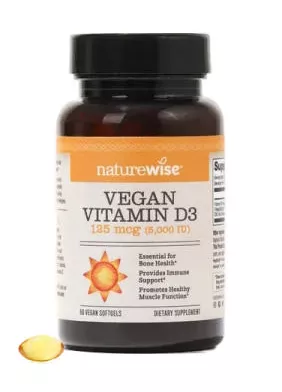
Price: $15-$20 for a 60-softgel bottle
Benefits:
- Supports immune function and bone health.
- Helps regulate insulin levels and mood, important for PCOS management.
Features:
- High-potency vitamin D3 (cholecalciferol) supplement.
- Third-party tested for purity and potency.
Ingredients:
- Vitamin D3 (cholecalciferol) derived from lanolin.
Pros
- Provides a substantial dose in one small softgel.
- Gluten-free and non-GMO.
Cons
- May not be suitable for those with sensitivity to lanolin.
3. Thorne Research – Basic Prenatal
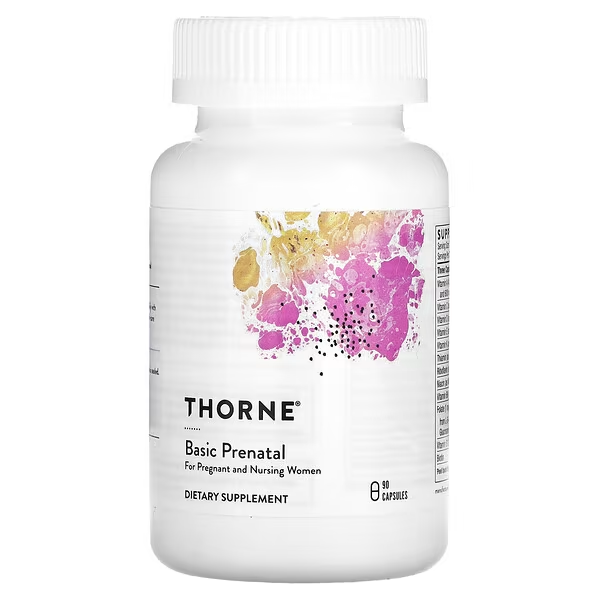
Price: $30-$35 for a 90-capsule bottle
Benefits:
- Supports hormone balance and fertility in women with PCOS.
- Provides essential nutrients like activated B vitamins and chelated minerals.
Features:
- Contains folate instead of synthetic folic acid, which is better for those with MTHFR gene mutations.
- Includes iron and bioactive forms of key vitamins.
Ingredients:
- Active B vitamins (including methylated folate and B12), chelated minerals (like iron, zinc, and copper), and antioxidants.
Pros
- Gentle on the stomach.
- Formulated with bioavailable nutrients.
Cons
- May require multiple capsules daily.
4. Theralogix Ovasitol
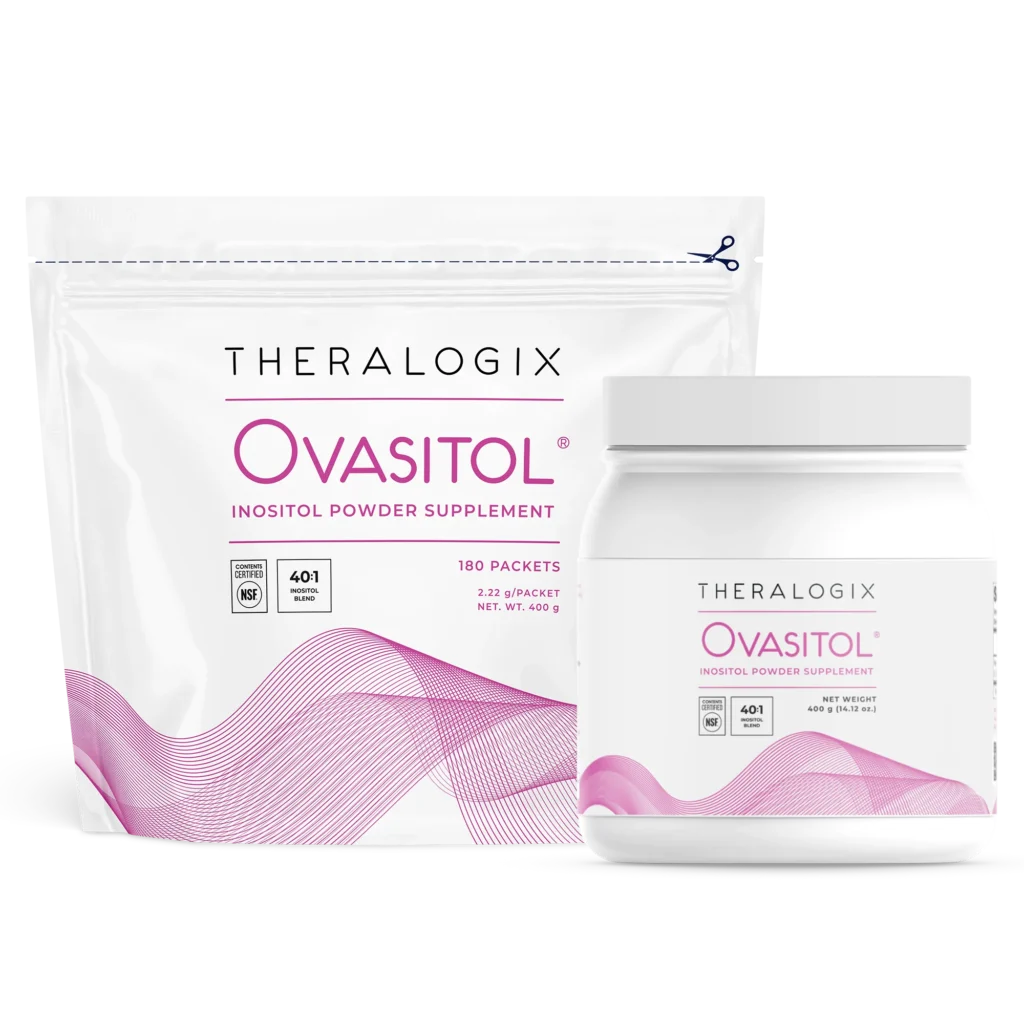
Price: $84.00 for a 90-day supply
Benefits:
- Supports normal hormonal levels
- Promotes healthy ovarian function
- Improves metabolic markers
Features:
- Clinically studied 40:1 inositol ratio
- NSF certified for content accuracy
- Powder form for easy consumption
Ingredients:
- Myo-Inositol (2000 mg)
- D-Chiro Inositol (50 mg)
Pros
- NSF certified, ensuring high quality
- Trusted by many gynecologists
- Suitable for long-term use
Cons
- Some may find powder form less convenient
- Requires daily usage for effectiveness
5. Nature’s Way DIM-plus
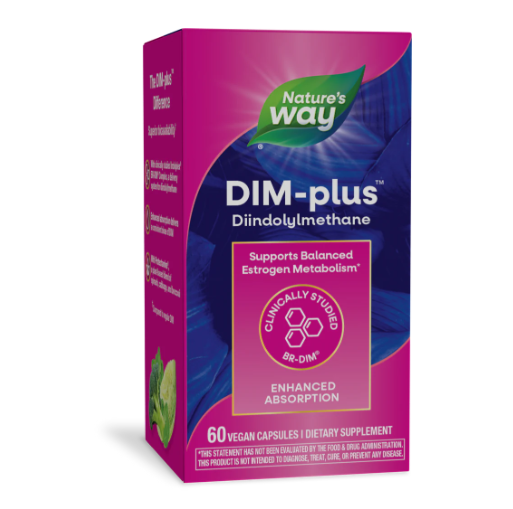
Price: $24.99 for a 60-capsule bottle
Benefits:
- Supports estrogen metabolism
- Balances hormone levels
- Provides antioxidant support
Features:
- Contains enhanced bioavailability DIM (Diindolylmethane)
- Includes additional vitamins for absorption
- Vegan and gluten-free
Ingredients:
- DIM (100 mg)
- Vitamin E (D-Alpha Tocopheryl Succinate) (36 IU)
- Phosphatidylcholine (from soy) (100 mg)
Pros
- Affordable and effective
- Supports hormonal balance and detoxification
- Good for skin health
Cons
- May cause mild digestive discomfort in some
- Contains soy, not suitable for those with soy allergies
Each of these supplements offers unique benefits tailored to addressing the symptoms of PCOS. When choosing a vitamin, consider your specific health needs, budget, and any dietary restrictions. Always consult with a healthcare provider before starting any new supplement regimen.
Conclusion
For women with polycystic ovarian syndrome (PCOS), finding ways to better reproductive health is key. The right mix of supplements is known to enhance fertility and improve menstrual health.
Inositol is especially helpful in managing PCOS. It helps with insulin sensitivity and boosts ovarian function. This supplement also improves egg quality. It can raise pregnancy rates, especially with fertility treatments.
Vitamin D also plays a big role in handling PCOS—it fills the nutritional gap. Besides helping bones, it benefits the immune system and muscles. Importantly, it creates better conditions for fertility in women with PCOS. Studies show Vitamin D levels affect reproductive health, making it vital for treatment plans.
Dealing with PCOS means finding the right supplements. Adding vitamins for female fertility to one’s daily routine can greatly enhance fertility. It also promotes a healthier menstrual cycle. This tackles PCOS’s effects on blood vessels and hormones.
Managing PCOS well leads to significant improvements in life quality through specific hormonal and nutritional support.
FAQs
What are the best vitamins for women with PCOS?
Women with PCOS may benefit from taking vitamins such as vitamin D, inositol (a type of B vitamin), and omega-3 fatty acids to help manage symptoms like insulin resistance and hormonal imbalances.
Which multivitamin is best for PCOS?
Look for a multivitamin specifically formulated for women with PCOS that includes essential nutrients like vitamin D, B vitamins (including inositol), and minerals like chromium and magnesium.
What are the best pills for PCOS?
Pills commonly used for PCOS management include birth control pills (to regulate menstrual cycles), metformin (to improve insulin sensitivity), and spironolactone (to reduce excess hair growth and acne). However, the best treatment and the best vitamins for women with PCOS plans varies based on individual needs.
What vitamin deficiency is PCOS?
Women with PCOS often have deficiencies in vitamin D and certain B vitamins like inositol, which are important for metabolic health and hormone regulation.
How to slim down with PCOS?
Managing weight with PCOS involves a balanced diet, regular exercise, and possibly medication or supplements to address insulin resistance. Focus on whole foods, limit refined carbs, and incorporate strength training into your exercise routine.
Can I take vitamin C if I have PCOS?
Yes, Vitamin C is one of the best vitamins for women with PCOS and is generally safe and beneficial for women with PCOS. It can help reduce inflammation and support immune function, which may be beneficial for overall health.
Is vitamin D and B12 deficiency PCOS?
Vitamin D and B12 deficiencies are commonly associated with PCOS due to their roles in insulin sensitivity, hormone regulation, and metabolism. Supplementing with these vitamins may be recommended for women with PCOS who have deficiencies.
Disclaimer: This content, including advice, provides generic information only. It is not a substitute for a qualified medical opinion. Always consult a specialist or your doctor for more information. Nutrition Cult does not claim responsibility for this information.

